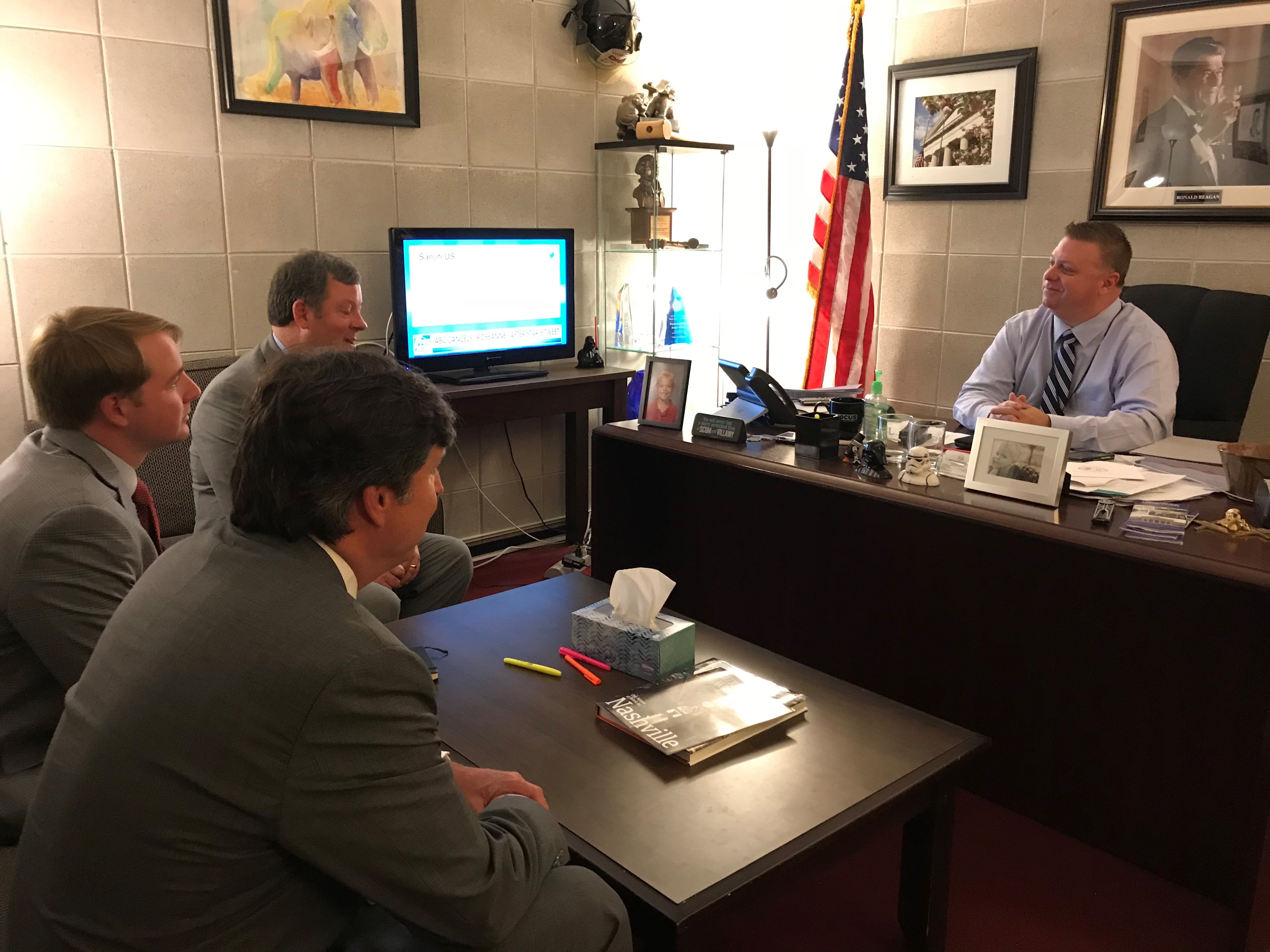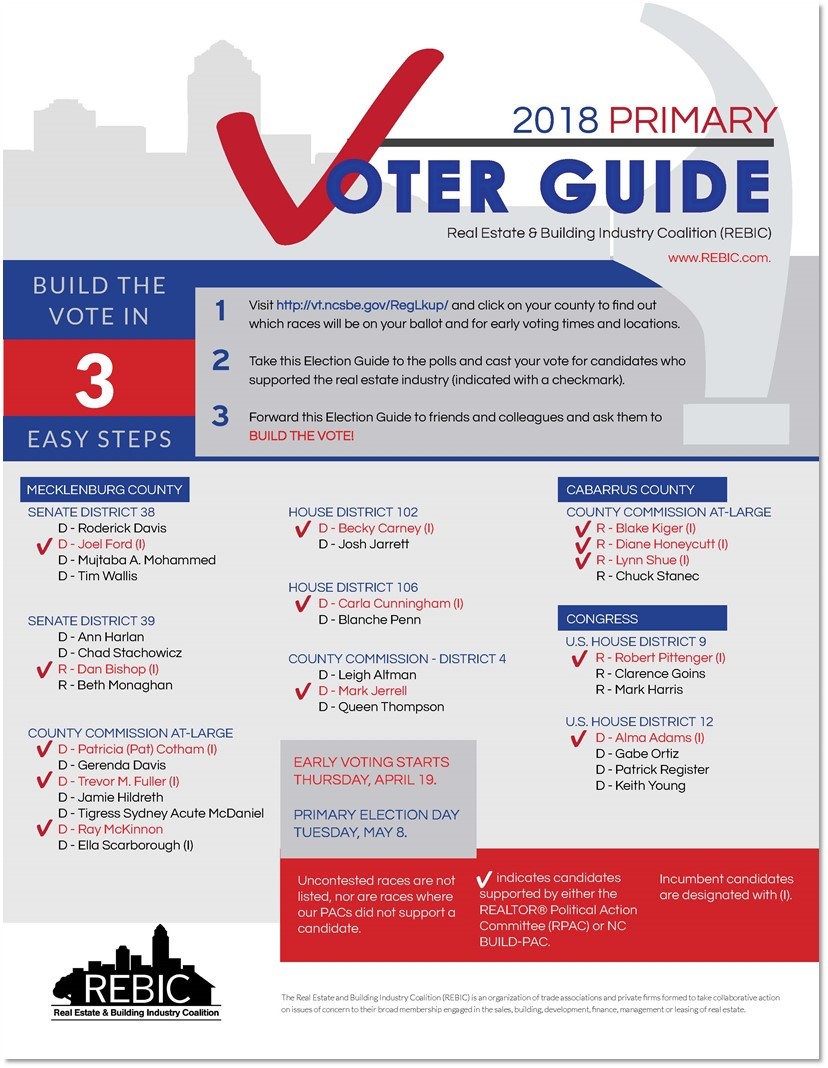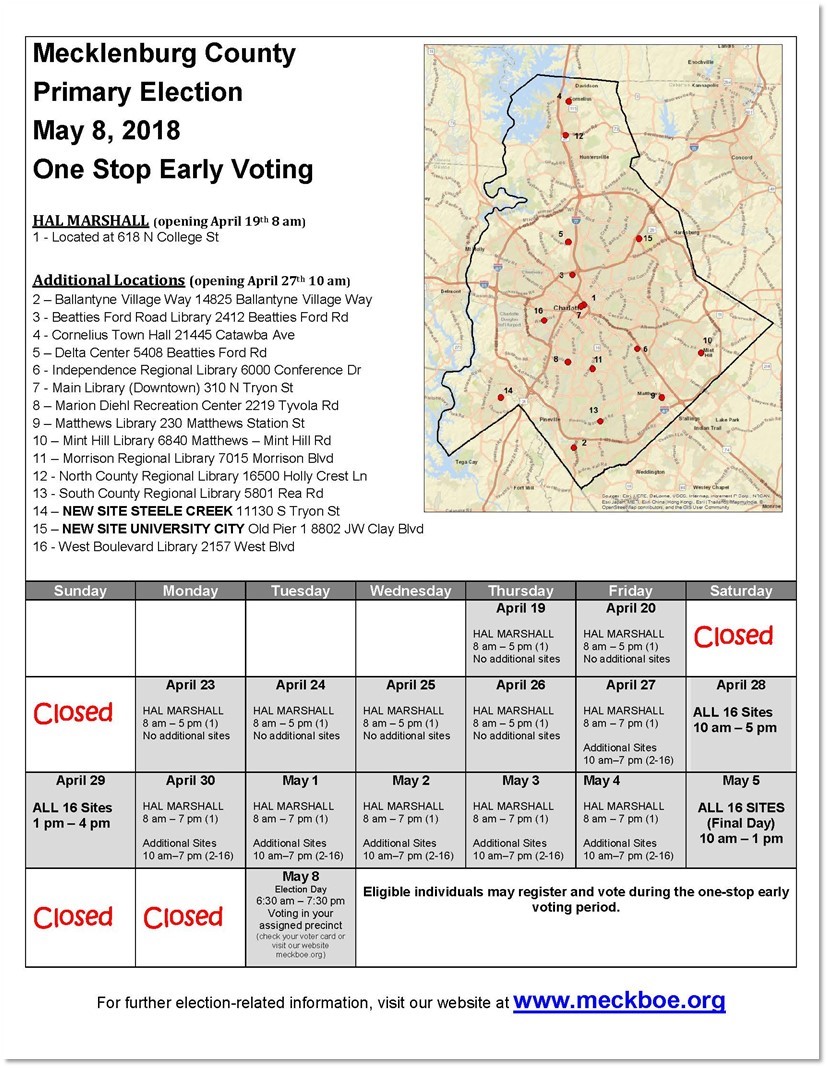Posted on June 25, 2018
 The North Carolina General Assembly approved last week's legislation that would make substantive reforms to local building permitting and inspection processes both Mecklenburg County and statewide.
The North Carolina General Assembly approved last week's legislation that would make substantive reforms to local building permitting and inspection processes both Mecklenburg County and statewide.
HB 948 – ‘Building Code Regulatory Reform‘ was sponsored by Rep. Mark Brody (Union), and makes some very beneficial changes to the permitting and inspection process that would benefit both home builders and commercial developers. They include:
- Clarifies existing language allowing a licensed architect/engineer to certify a component or element of a building, without the need for a city or county to inspect and approve that component.
- Gives the State Department of Insurance the statutory authority to assign Marketplace Pool inspectors to conduct an inspection in the event the local officials cannot provide one within 2 business days of a request.
- Provide greater flexibility for the State Q-Board to grant provisional licenses to Code Enforcement officials who are certified and in good standing in other states, which will help address the growing issue of inspector vacancies across North Carolina.
HB 948 is now awaiting Governor Cooper’s signature. Thanks to the North Carolina Home Builders Association (NCHBA) for their leadership on this critical piece of legislation.










